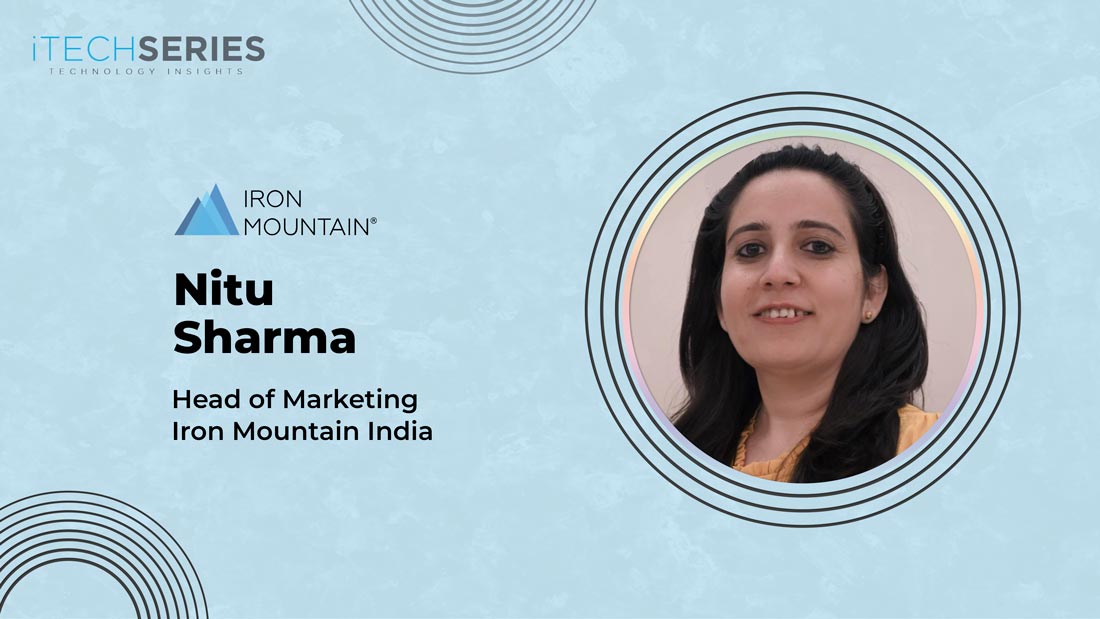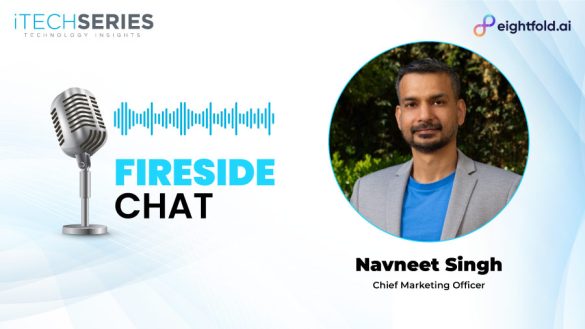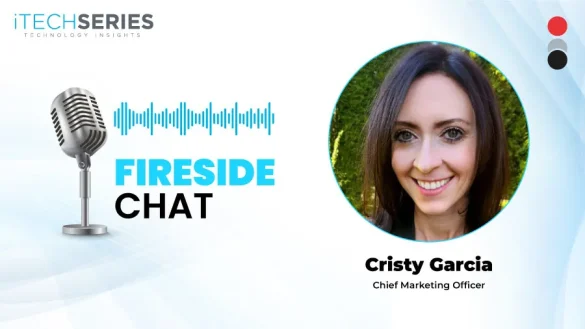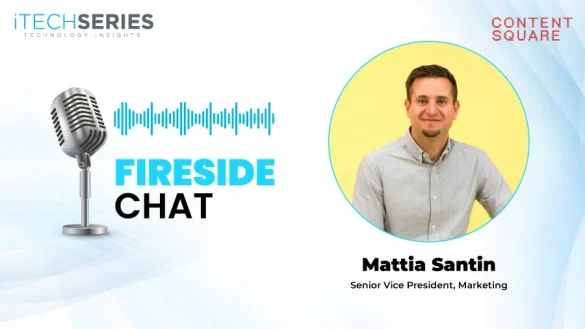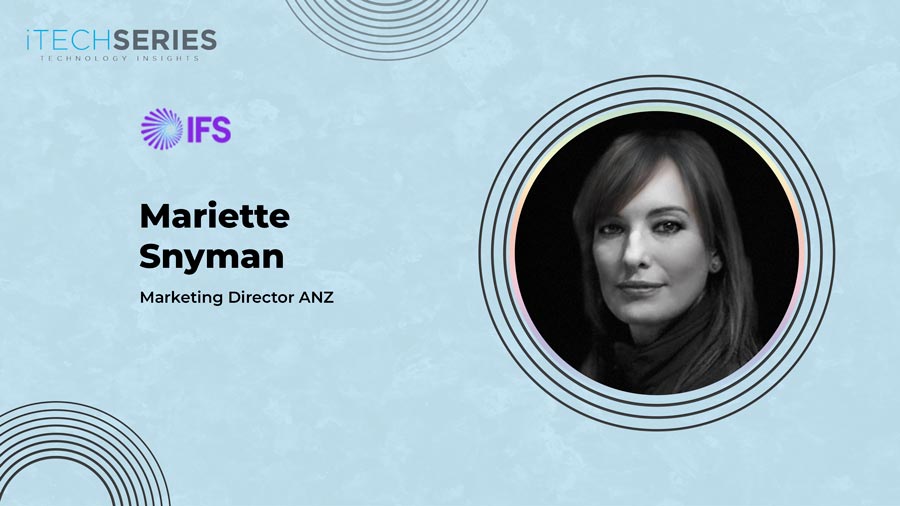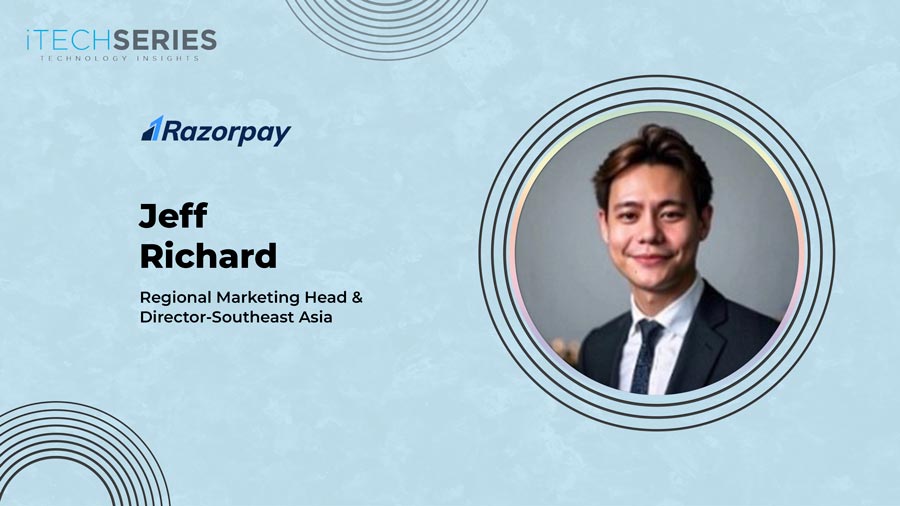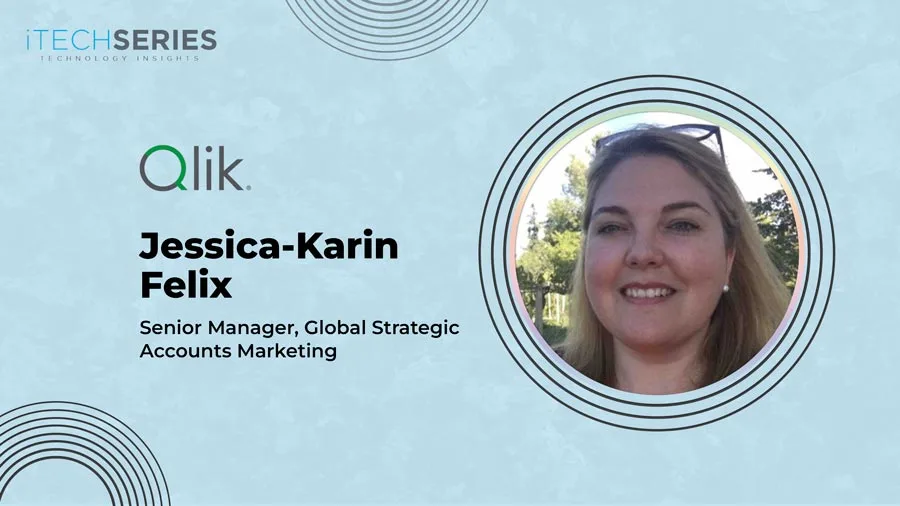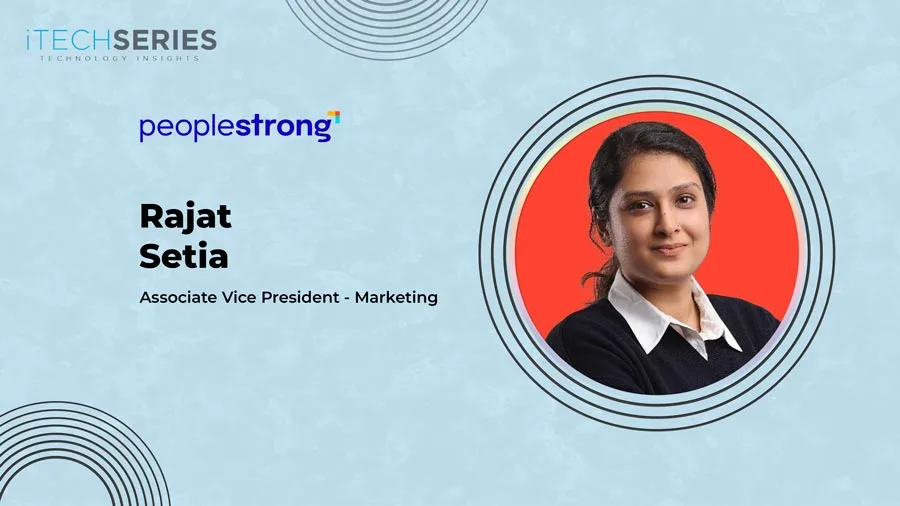Nitu Sharma, Head of Marketing at Iron Mountain India, shares her journey from computer science engineer to marketing leader. She offers her insights into B2B marketing evolution, the power of personalization, data-driven strategies, and leveraging technology for impactful initiatives.
Welcome to the interview series, Nitu. Could you tell us about yourself and your journey as a marketing leader?
Absolutely, I’m excited to share my journey. I transitioned from a computer science engineer to a marketing leader, currently spearheading the marketing efforts at Iron Mountain India. With over 16 years of experience in technology and IT marketing, I bring a unique blend of technical expertise and strategic vision. I hold a postgraduate degree in Marketing & Finance from UCLA and am a certified Independent Board Director. Throughout my career, I’ve been recognized as a visionary leader, earning industry accolades for my innovative marketing strategies and impactful campaigns. My career has been marked by a commitment to driving significant market impact and growth across diverse roles, geographies, and industries. I’m passionate about leveraging technology to create transformative marketing initiatives that resonate with audiences and deliver measurable results.
How has the role of B2B marketing evolved, particularly with the increased focus on personalization and data-driven strategies?
The landscape of B2B marketing has transformed dramatically from its traditional roots. Personalization has evolved far beyond simply addressing individuals by name or title; it now encompasses a deep, contextual understanding of customer needs and preferences, driven by sophisticated data analytics and tools. Today’s marketers are equipped to segment and target audiences with unprecedented precision, allowing us to tailor our strategies to the specific contexts and challenges faced by our customers. This data-driven approach not only enhances engagement but also fosters stronger relationships, ultimately driving meaningful business results.
When presented with multiple go-to-market campaign ideas, how do you evaluate and select the best ones to move forward with?
In my view, selecting the right go-to-market campaign requires a thoughtful and strategic approach, with the customer at the center of every decision. The most effective campaigns are those that genuinely address customer needs and preferences. I also prioritize sustainability, ensuring that the campaign can withstand systemic changes and external factors. It’s crucial that each initiative aligns with our brand values and purpose, reinforcing what we stand for as a company. This alignment not only strengthens our message but also builds lasting trust with our audience.
“Selecting the right go-to-market campaign requires a strategic approach, with the customer at the heart of every decision. The most effective campaigns genuinely address customer needs and preferences.”
How do you approach the allocation of the marketing budgets towards paid media channels?
Allocating the marketing budget for paid media channels requires a strategic and measured approach. While paid advertising can effectively drive rapid awareness, it can also lead to overspending and getting lost in a crowded market if not executed thoughtfully. Even with a substantial budget, it’s essential to prioritize targeted advertising. I advocate for testing and experimentation to identify what resonates with our audience before making significant investments. This method not only optimizes our spending but also ensures we’re making informed decisions that align with our overall marketing strategy. Balancing speed with strategic insight allows us to maximize the impact of our campaigns while being fiscally responsible.
Can you tell us about a most challenging yet successful marketing program that you led?
Certainly! Every marketing initiative presents its own set of challenges and risks. One particularly challenging yet rewarding program I led—after being hired specifically for this task—involved rebranding an existing product that had not resonated well with customers in a specific geography due to cultural reasons. We needed to invest significantly in campaigns to not only build brand recognition but also to help disassociate the product from its previous negative associations. It was a complex process, requiring our target audience to learn new perceptions while unlearning long-held beliefs. This journey was difficult, but ultimately successful, as we were able to reshape the brand’s image and strengthen its connection with the market.
What role does customer feedback play in your marketing strategy development, and can you share a specific instance where feedback led to a significant change?
Customer feedback is essential in shaping our marketing strategy, especially when we prioritize the customer at the core of our approach. Regularly gathering feedback becomes integral to our programs and campaigns. For instance, when I joined a company that had struggled with this for many years, I discovered that customers were searching for our products and services using entirely different terms than those they had been targeting for years. This oversight meant we were missing out on a significant segment of potential customers. Sometimes, small changes—like renaming our products and services to align with the terminology our customers actually used—made a significant difference. By analyzing this feedback and implementing these adjustments, we ultimately achieved a remarkable 25% increase in the company’s top line for that particular product line within a year post-launch. This experience reinforced the power of listening to our customers and adapting our approach based on their insights.
From a go-to-market alignment point of view, what is your take on marketing, sales, customer success, and RevOps working closely together towards the company’s revenue goals, rather than in silos?
I firmly believe in the concept of Revenue Marketing. No marketing campaign should be launched without a robust tracking mechanism in place. Establishing these metrics not only helps us measure success but also reveals various points of coordination that involve other departments, including sales, customer success, and RevOps. It’s crucial to recognize that when we tie our actions to revenue, regardless of the department, we begin to view our efforts through a different lens. Taking a step back to understand the broader picture enables us to align more effectively. Additionally, it’s essential to communicate revenue goals to department heads and demonstrate how their actions directly impact the business’s top line. Gaining their buy-in and support is vital for fostering collaboration and ensuring that we operate in harmony, rather than in silos, which can lead to missed opportunities for synergy.
As a marketing leader, how have AI-enabled tools helped optimize your marketing tech stack?
As a marketing leader, I’ve seen firsthand how AI-enabled tools have transformed our approach to optimizing the marketing tech stack. The advent of AI has significantly changed the landscape, allowing us to streamline or even replace many traditional tools. When implemented effectively, AI and machine learning technologies can optimize our existing tech stack, enabling us to operate at breakneck speed while utilizing half the resources within the same budget. This efficiency not only enhances our operational effectiveness but also frees up valuable time, allowing us to focus on crafting strategic and innovative revenue generation campaigns that drive growth for the company.
What would be your biggest advice for aspiring marketing leaders on building and managing high-performing marketing teams?
To all aspiring marketing leaders, I want to emphasize that building high-performing teams is not just an option; it’s essential. Embracing technology, particularly AI, is crucial. We should be open to experimentation—test ideas, fail fast if necessary, and quickly learn from the experience. In today’s landscape, achieving outcomes is important, but the speed and efficiency with which we reach those outcomes are equally vital. My advice is to keep experimenting: launch initiatives, measure their impact, learn from the results, adapt your strategies and re-launch. By fostering an agile approach, you can build high-performing teams that consistently deliver impressive results. At this crossroads in marketing, where change is the only constant, having a mindset shift towards multi-functionality and collaboration can be a beaconing strategy for success.

Trusted by more than 225,000 organizations around the world, and with a real estate network of more than 85 million square feet across more than 1,400 facilities in more than 50 countries, Iron Mountain stores and protects billions of valued assets, including critical business information, highly sensitive data, and cultural and historical artifacts. Providing solutions that include information management, digital transformation, secure storage, secure destruction, as well as data centers, cloud services, and art storage and logistics, we help customers lower cost and risk, comply with regulations, recover from disaster, and enable a more digital way of working—and all this with a commitment to sustainability.
Ms. Nitu Sharma, Head of Marketing for India at Iron Mountain, brings over 16 years of experience in technology and IT marketing, consistently achieving remarkable revenue growth and transforming challenges into opportunities. She is a postgraduate in Marketing & Finance from UCLA with a background in computer science and engineering, as well as a certified Independent Board Director. Recognized as a visionary leader, she has a proven track record of innovative strategies and has received marketing industry awards for her impactful marketing campaigns. During her tenure spanning more than a decade in the marketing industry, she played a key role in driving substantial market impact. Beyond her work at Iron Mountain, Nitu is a passionate speaker, researcher, and financial educator committed to empowering at least one million Indians—especially women—through targeted investor awareness training sessions.

